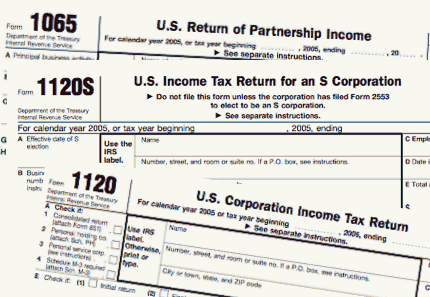Say that you meet a client for lunch and discuss business during the course of the meal. Or maybe you and the client sit down for dinner and drinks after a round of golf. Tax deductible or not? The opinions of tax experts are divided.
Under the new Tax Cuts and Jobs Act (TCJA), no deduction is allowed for business entertainment, beginning in 2018. But the law isn’t exactly clear how the new rules apply to business meals. Until the IRS issues some much-needed guidance, the exact tax treatment for such meals is open to interpretation.
To recap, under prior law you were allowed to deduct 50% of your qualified business entertainment and meal expenses. For this purpose, entertainment could be “directly-related-to” or “associated-with” your business.
It was generally more difficult to claim deductions for directly-related expenses. For instance, if you provided meals in a hospitality suite at a convention with the clear intent of generating business, the cost was deductible. But other outside meals you paid for clients for purely goodwill reasons didn’t qualify as directly-related entertainment.
Conversely, if such a meal immediately preceded or followed a substantial business meeting, you could deduct 50% of the cost as associated-with entertainment. Thus, if you wrapped up a contract negotiation in the afternoon and treated the client to dinner afterwards, you could write off 50% of the expense, including costs attributable to significant others – as long as the entertainment wasn’t “lavish or extravagant.”
Now the TCJS appears to wipe out deductions in these instances, but some commentators believe that deductions are still available if business is conducted during the meal. In any event, the general consensus is that you may still deduct 50% of the cost of meals incurred while you’re legitimately traveling away from home on business. If you eat out with a client during a business trip, costs may have to be allocated.
The TCJA makes several other changes relating to meal expenses. For instance, prior to the new law, meals provided to employees for the convenience of an employer – such as lunches served in a company cafeteria or similar facility – were 100% deductible by the employer. Under the TCJA, this deduction is limited to 50% of the cost, beginning in 2018. After 2025, the employer gets no deduction.
On the other hand, if an employer pays for recreational or similar expenses on a company-wide basis, it’s generally agreed upon by the experts that the entire cost can be deducted, just as before. This would apply to a summer company picnic or barbecue that doesn’t discriminate in favor of the higher-ups.
We’ll keep our eyes pealed for IRS pronouncements on the new business meal rules. In the meantime, make sure that your clients are carefully following the substantiation requirements for business meals, paying close attention to the allocation of expenses.
Thanks for reading CPA Practice Advisor!
Subscribe Already registered? Log In
Need more information? Read the FAQs




